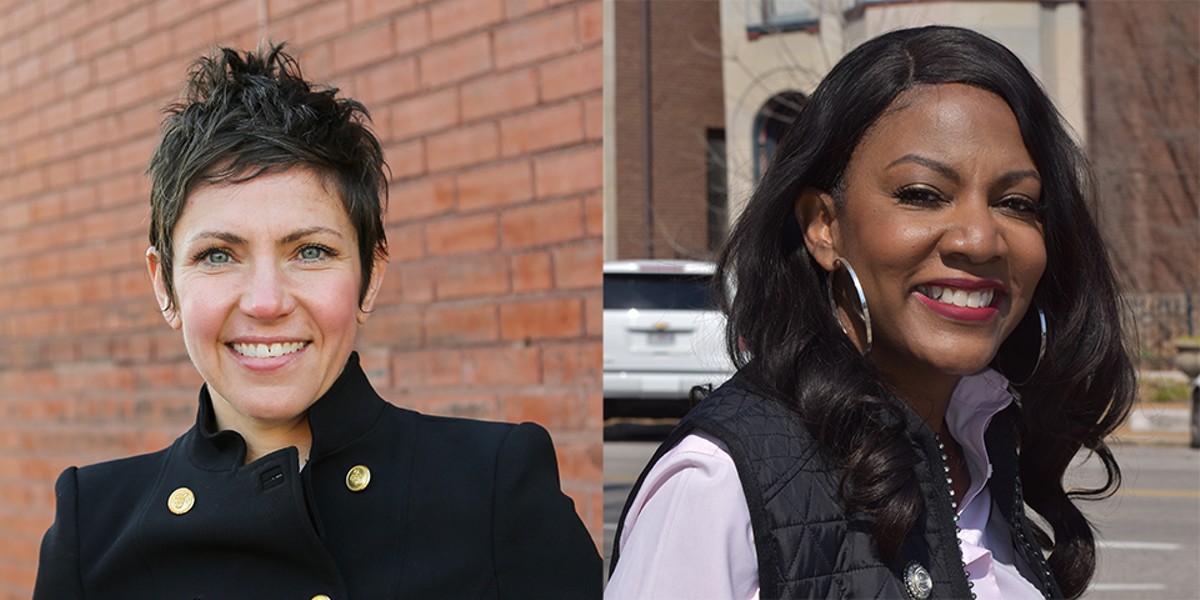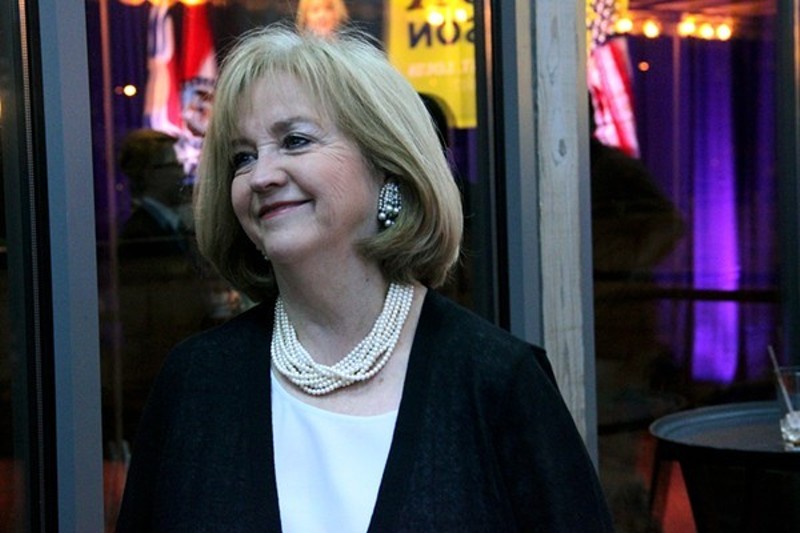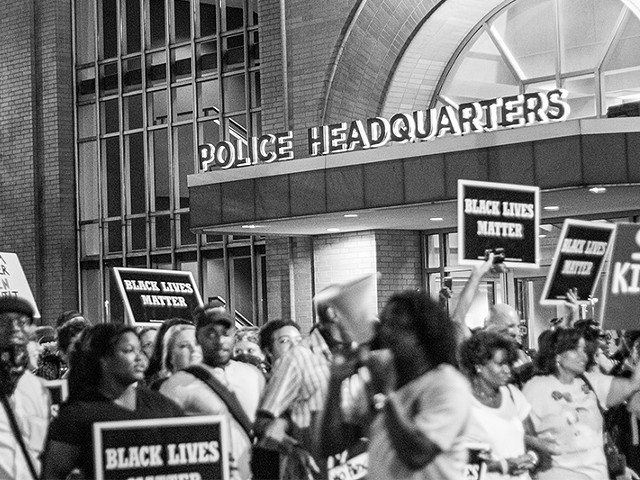On November 18, 2020, three days before the official start of the election season, St. Louis' first female mayor announced that she was done with politics.
Lyda Krewson had turned 68 that weekend. She had spent the previous eight months leading a pandemic-bludgeoned city, and, even before COVID-19 hit, her term in office coincided with mass protests and historic homicide rates. Krewson had barely beaten Jones in a seven-candidate primary in 2017, and now thanks to "approval voting," there was no chance for a similarly split-vote victory.
For Krewson, it was time to move on. That day, at a press conference that would instantly remake St. Louis' political landscape, she explained that her recent birthday had given her an opportunity to evaluate what she really wanted as she neared 70, and whether that included another campaign season and four years as mayor of St. Louis.
"I'm proud of what we accomplished," she said of her tenure at the top of City Hall. "But elections are about the future."
Yet the future wasn't entirely done with Krewson. She stayed out of the primary politics and made no endorsements, but she was still mayor on March 10, when a Democratic-led Congress passed the American Rescue Plan: The plan called for a half-billion-dollar trove of relief funds earmarked for St. Louis.
Krewson's announcement of the relief package sent yet another shockwave into the mayoral election. Over the next week, both Jones and Spencer released outlines of their goals and priorities for use of the funding. As for Krewson, she released her own six-page plan for disbursing the money to various city needs and departments, writing that she hoped it would serve "as a starting point for consideration so that the City can urgently move to deploy these transformative and historic resources."
The urgency isn't understated. Economic hardships have hit businesses and employees, landlords and renters, homeowners and people without homes. Underemployed and laid-off workers are struggling to make ends meet, even as eviction moratoriums are lifted.
The relief funds are a rarity in St. Louis: For once, the city won't just be arguing about whether to take money from one program or department to fund another, debating the future of the city's services in terms of what it can do without; it will be money the city can actually use without diminishing something else.
But this won't be Krewson's money to handle. During a KMOV (Channel 4) town hall last week, Jones was asked about Krewson's proposed "starting point" for the funds.
"I think that's really cute," Jones shot back. "She put a plan together as she's leaving office, because she won't get to spend a dime of it. She'll be gone before it gets here."
Indeed, the first batch of funds is expected to arrive in the next two or three months. Still, the fate of those funds won't be the sole decision of the next mayor. During a March 23 debate, Jones referenced her experience in city government and connections with state and county officials — evidence, she argued, of what would be a capable and responsible regional strategy.
"My priorities are that we need to keep people in their homes," Jones said during the debate. She added that the money could also ensure the city operates multiple mass vaccination sites "where everybody can get a shot locally rather than driving four hours like we've seen recently."
In Jones' plan, some of the money would be used to create an oversight body whose mission would be to track the spending of the vast relief funds across the city and region.
"I would set aside a pot of funds to get community input, because this is a lot of money," she acknowledged. "It can do a lot of good, and we want to make sure we're getting community input on how we can spend the money. Because I don't have all of the answers."
Having an answer for every question has become something of a theme for Cara Spencer's campaign. Days after Krewson released her proposal, Spencer followed up with a "draft investment plan" of her own with hard numbers, including a plan to support 1,000 new home owners with down-payment relief ($15,000 per person) and completing 2,000 home repairs ($15,000 per home). Another proposal would see the city pay as much as $25,000 to "fully rehab" and market thousands of vacant properties owned by the city's Land Reutilization Authority.
Addressing the fate of the $500 million at the March 23 debate, Spencer called it "a once-in-a-century opportunity."
But the money isn't just about COVID-19, and Spencer drew a line between the massive size of the federal aid package and St. Louis' deeper problems. She pointed to her draft proposal to target 65 percent of the funds to north St. Louis, "in areas that have been traditionally disinvested."
"The reason we're receiving so much money," she said, "is that we need to address the long-term issues that have been plaguing our city for decades."







